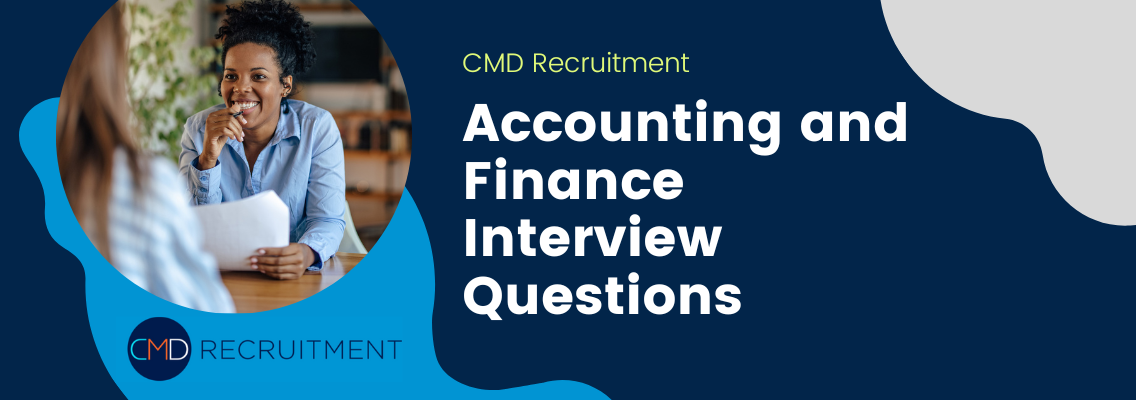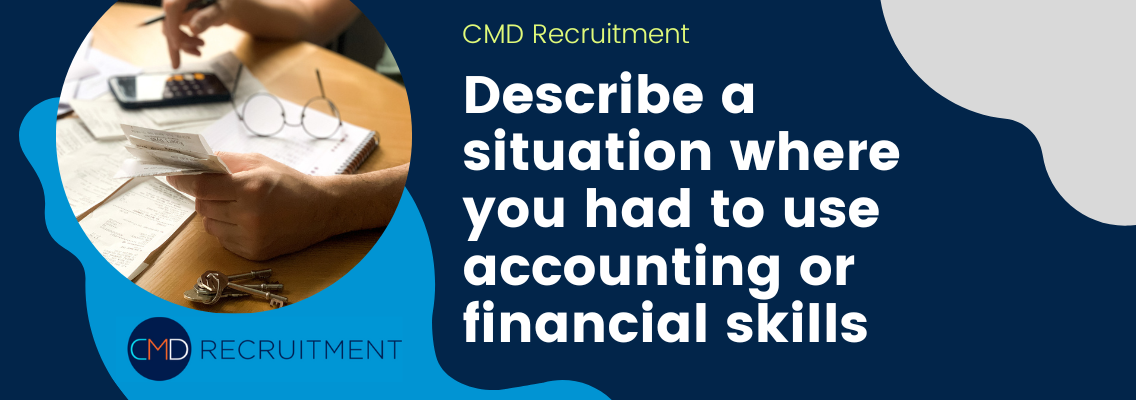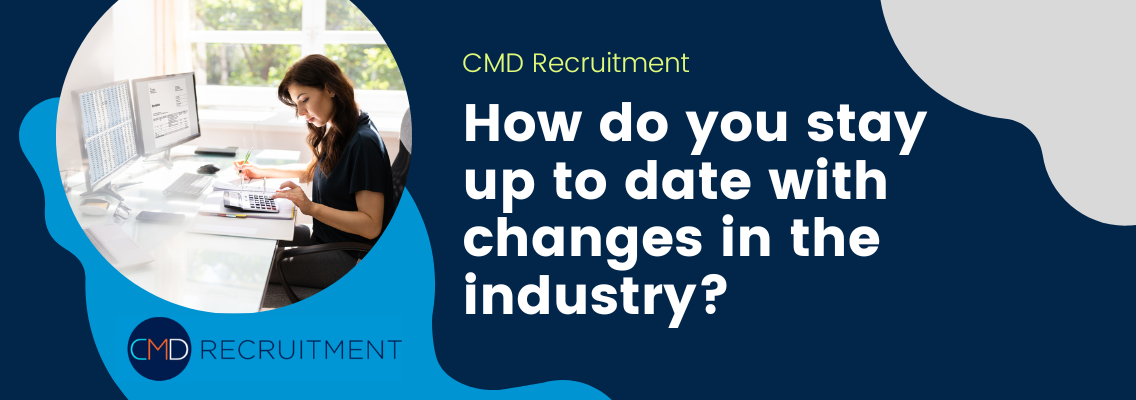Important notice - We are aware of a scam where people are impersonating CMD Recruitment to offer jobs via WhatsApp & Telegram. This is a scam, CMD Recruitment will never contact new candidates via these methods. Any legitmate offer from CMD Recruitment would be made via a telephone call.

December 14, 2022
Applying for a role in accounting or finance will require a stringent interview process. This may take place over multiple interviews and you may even face a practical test. The best job seekers know that preparation is the key to success when it comes to interviews.
The core skills that are needed for success in accounting and finance roles include strong analytical, communication and interpersonal skills. You should also have a good understanding of accounting principles and terminology, as well as experience with computers and various software programs. Additionally, you will need to be able to manage your time effectively and work well under pressure.
Interviewers will assess these skills through a number of different question types, including behavioural questions and performance-based questions. You can also expect some technical questions about software and other tools to crop up. And finally, companies also want to know that you’re a good culture fit, so expect to hear some opinion questions about the industry.
Below is a list of common accounting and finance interview questions to help you get ready for the process:
This question is another way to ask “tell me about yourself”? The interviewer wants to know where you have worked, what responsibilities you had, and how you have progressed to this point in your career. Give them a brief overview of your training and work experience so they can assess where you are in your career.
This question is asking you to assess why you think you’re a good fit for the role. It’s also an opportunity to check if you have fully understood the job role and what is expected.
When you are applying for the role, you should be tailoring your CV to the job description and ensure that you meet all of the requirements. If there are any gaps in your experience, show how you plan to address these gaps with additional training.

This question is often asked in behavioural interviews, as it allows the interviewer to see how you reacted and managed a previous work experience. Make sure you focus on what you did, not what your team or company did. Always focus on your individual contribution to situations, even if you are talking about a time you worked as a team. Saying “I” will always be more powerful than “we”.
This question is designed to assess your motivations and provide insight into why you think you’re the best fit. Be clear and concise while explaining what it is that drew you to this particular job opportunity. You don’t have to give the impression that this is the ultimate dream job, you can share your wider ambition and how you think this role could help you to get there.
This question is another behavioural one, as it requires you to explain how you might react in a certain situation. The best approach is to provide an example from your own experience, as this will show the interviewer that you have dealt with similar situations before.
This technical question is designed to assess your practical knowledge and experience. Make sure you are familiar with the most commonly used software in accounting and finance, such as Excel, QuickBooks or Xero. Be prepared to explain how you have used these programs and what results they helped you to achieve.
This question is designed to assess your understanding of the subject. Make sure you are familiar with the principles and standards that guide financial reporting, such as Generally Accepted Accounting Principles (GAAP) and International Financial Reporting Standards (IFRS). Additionally, provide examples of specific areas such as balance sheets, income statements and cash flow reports. This is also an opportunity to give them more information about your work experience and additional training.

This question is designed to assess how aware you are of the latest developments in the field. It’s a great opportunity to talk about any extra-curricular activities, such as conferences and industry events that you have attended, or any relevant books and magazines that you regularly read.
This question is designed to assess your approach to cost control, and whether you have any methods or strategies that could be implemented in the new role. Be prepared to provide examples of specific steps taken or processes changed that helped to reduce overall costs.
This is a curveball question that might throw some people off course if they are not prepared to think on their feet. It’s designed to assess your creative problem-solving abilities and see if you can come up with innovative solutions that are tailored to the company’s needs. Provide a specific example of how you overcame an obstacle, and explain what you did differently to get the desired results.
Overall, it is important to remember that accounting and finance interview questions are meant to assess your technical knowledge and experience, as well as your ability to think on your feet and handle pressure. Be prepared with examples of how you have previously used your skills in a professional setting and be ready to explain the results achieved.
Additionally, make sure that you can provide evidence of any extra-curricular activities related to the field and how you are committed to ongoing training and development. Accounting and finance are fast-moving sectors that don’t sit still, so you need to be prepared to show how you will keep up.
Back to Blog